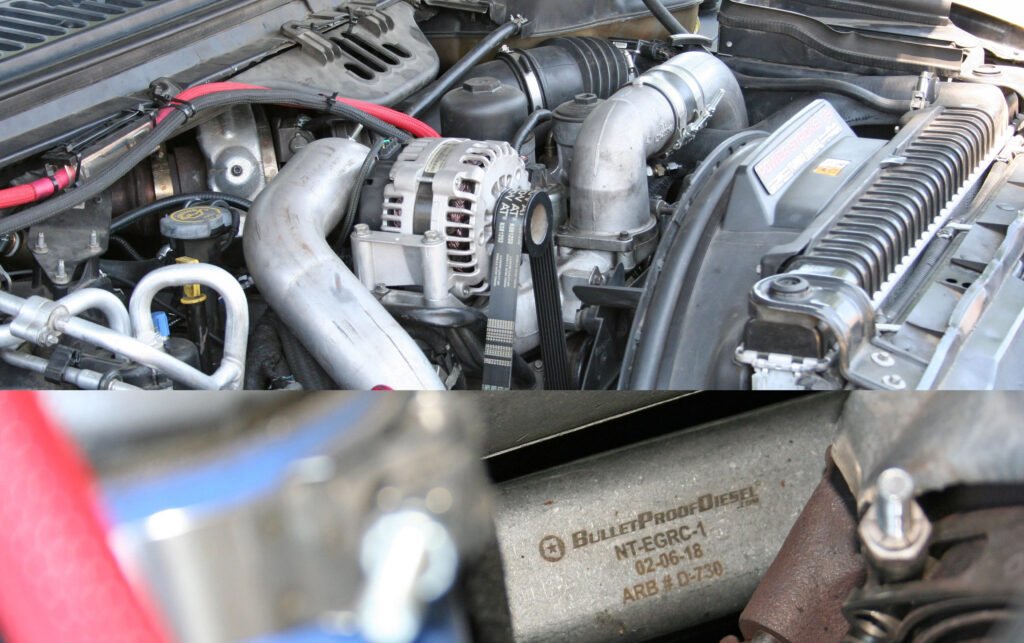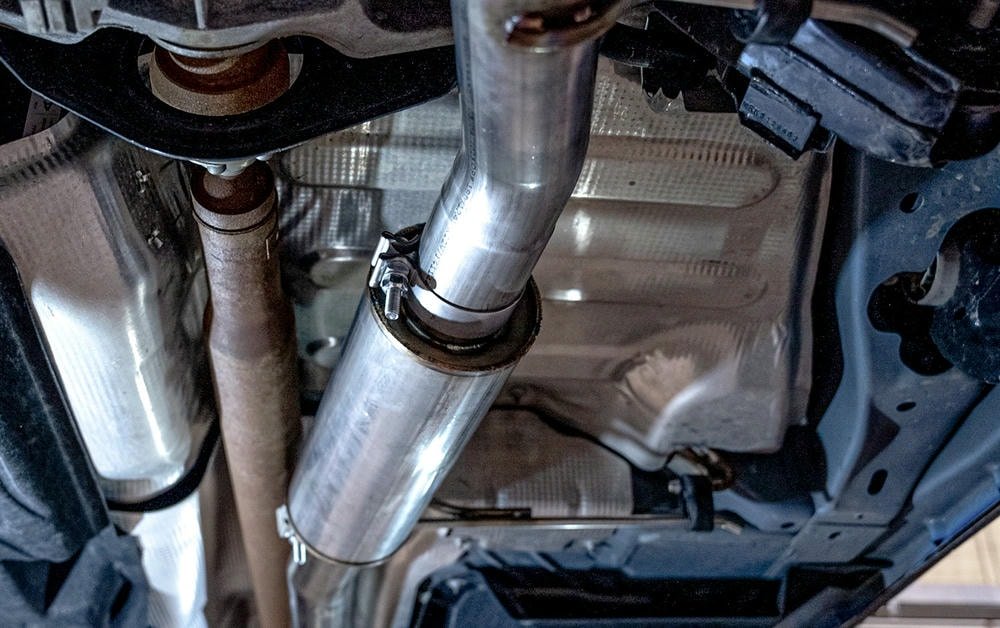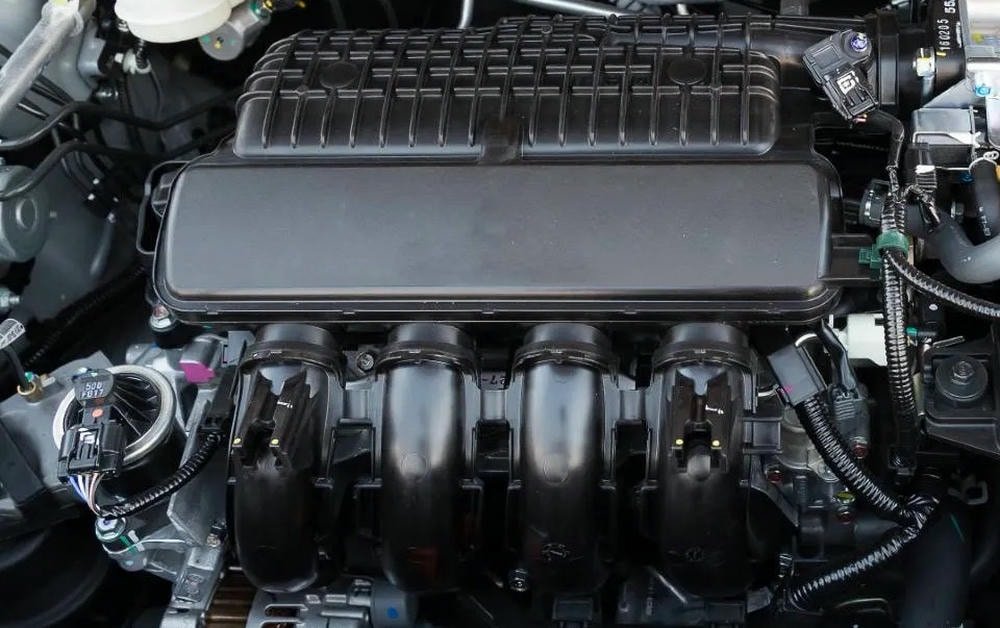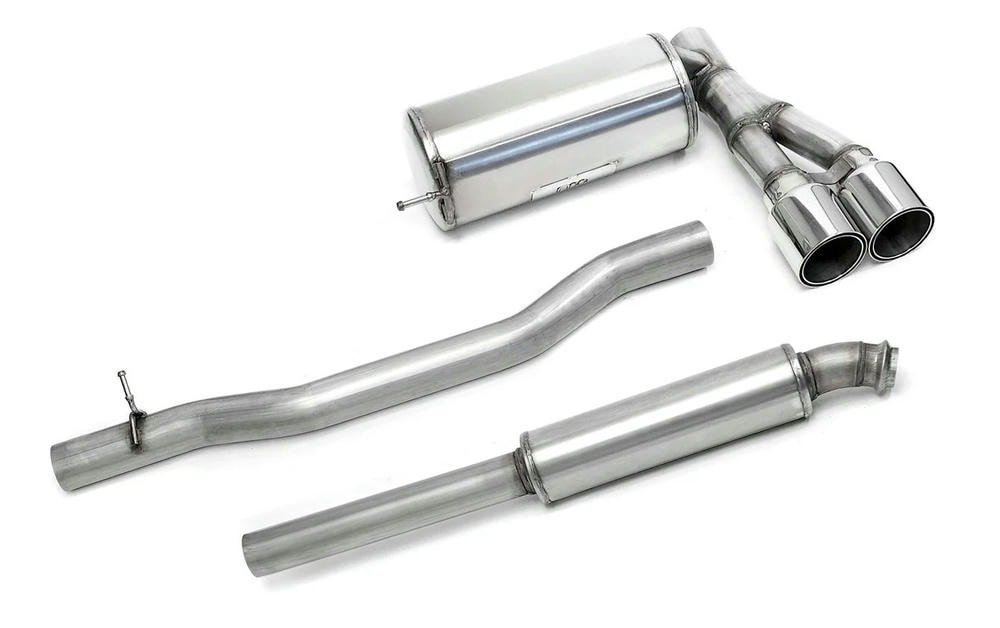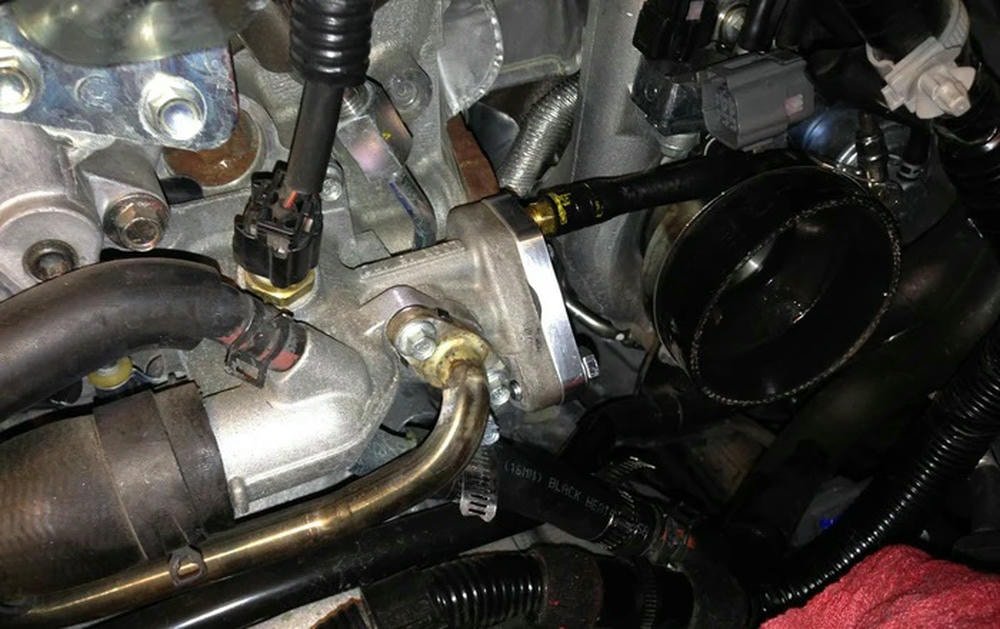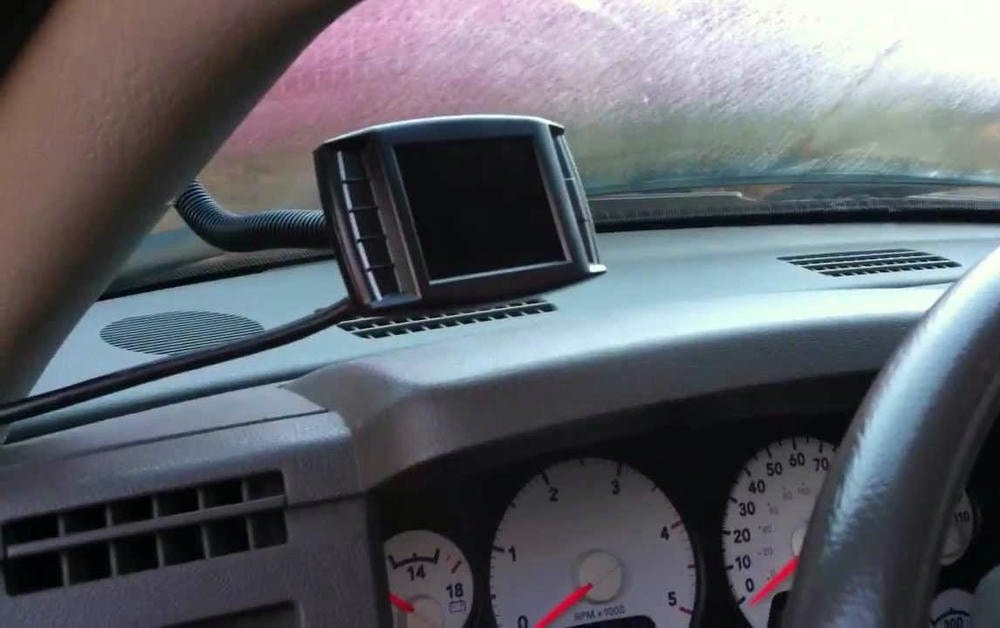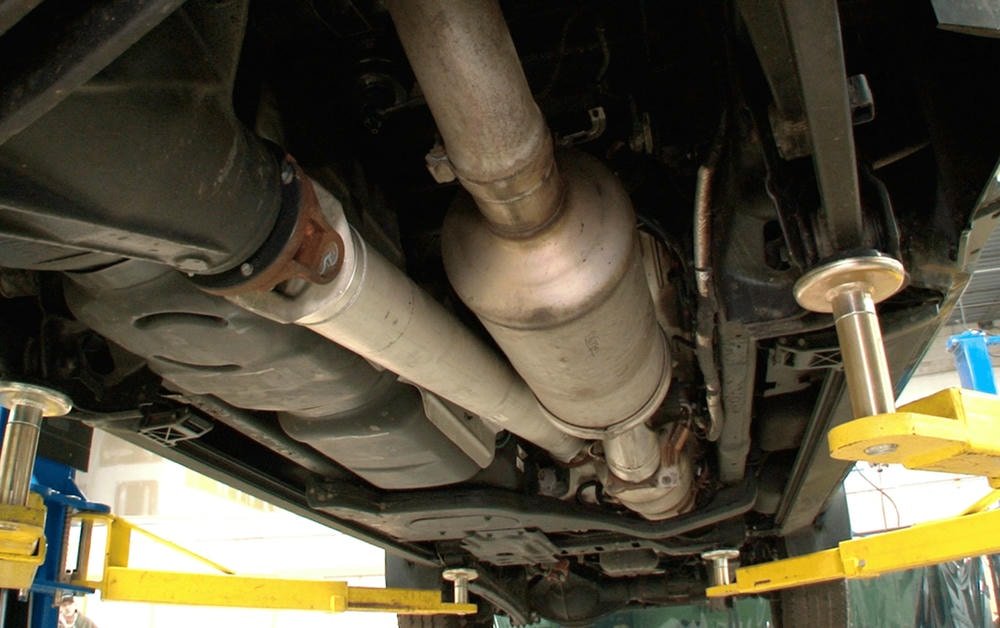This article talks about EGR delete kits et EGR coolers. EGR stands for Exhaust Gas Recirculation. An EGR cooler helps keep engine temperatures low and cuts down on pollution. It makes trucks legal to drive and good for the earth by reducing smoke.
On the other hand, an EGR delete kit takes away the EGR system to increase engine power and lower repair costs. But, it can lead to trouble with laws and future engine issues.
People pick between an EGR cooler or a delete kit based on how they use their truck, local rules, their budget, and what they want from their vehicle in the future. Deletes might give more horsepower but could also cause legal problems because they take off emission controls.
Keeping or getting a better EGR cooler keeps trucks within emission laws while maybe saving fuel and helping nature.
Let’s find out which is best for you.
Table des matières
ToggleUnderstanding EGR Coolers
EGR coolers help keep your truck’s engine from getting too hot by cooling down the exhaust gases before they go back into the combustion chamber. They play a big part in cutting down on smoke and making sure your diesel runs smooth.
Functionality and Purpose
These components are crucial in moderating exhaust discharges from diesel engines. Consider them akin to the respiratory system of trucks such as the F350 or F250, working to diminish contamination.
Their primary role is to decrease smoke and foster better air quality by chilling exhaust gases prior to their reintroduction into the engine. This operation also assists in boosting turbocharger productivity.
It’s an intelligent method to maintain power strokes in diesel engines, keeping them environmentally friendly without compromising on power.
From direct exposure, maintaining an EGR cooler implies that your truck will satisfy emission regulations and also run more fluidly. A confidant once shared, “A well-maintained EGR system prevents black smoke and keeps your engine content.” So accurate! These systems endure an immense heat load (literally), but succeed in safeguarding both the environment and your engine’s performance by cycling a portion of the exhaust gas through combustion again.
Benefits of EGR Coolers
EGR coolers are crucial in maintaining the efficient operation of diesel engines. They reduce the engine’s temperature by chilling exhaust gases prior to their return into the engine.
This procedure minimizes detrimental emissions and enhances the efficiency of your F-350 or any other power stroke diesel. Lower temperatures result in less strain on the engine, which could potentially decrease the need for repairs and extend your truck’s lifespan.
Implementing EGR coolers also leads to improved turbocharger performance due to their interaction with chilled air. Chilled air possesses greater density. Greater influx of this dense air to the turbocharger aids in boosting engine power with enhanced efficiency.
Therefore, the benefits include an engine that operates in a cleaner manner and potentially delivers greater power when required on journeys.
Common Issues with EGR Coolers
EGR coolers face several problems. One big issue is clogging. Soot from exhaust gases can build up in the cooler’s tubes. This blocks airflow, making the engine run hotter and less efficiently.
Another trouble spot is leaks. Over time, the cooler’s walls can crack due to constant heating and cooling cycles. Leaks let coolant escape into the système d'échappement, causing white smoke from the tailpipe and possibly mixing coolant with oil inside the engine – a real mess for diesel truck owners.
Folks have shared stories of their EGR coolers failing suddenly on Powerstroke diesel engines, leading to overheated engines and unplanned pit stops for repairs or replacements. Cracked EGR coolers are especially common in heavy-duty trucks that tow often or have high mileage.
Diesel engine tuning might aim for better power but ignoring these warning signs can lead to bigger issues like damaged turbochargers or even complete engine failure if not addressed early on.
Key Differences Between EGR Delete Kits and EGR Coolers
EGR delete kits and EGR coolers change how a truck’s engine handles exhaust gases, but they do so in very different ways. The choice impacts your truck’s power, its need for upkeep, the cost and tricky steps to get it installed, as well as legal issues about air pollution control.
Performance Impact
Removing the EGR system boosts puissance du moteur. Diesel truck owners often want more oomph for towing or just plain driving fun. An EGR delete can make that happen by getting rid of restrictions, leading to noticeable gains in horsepower and torque.
This tweak lets turbochargers work better too, pushing more air into the engine for a cleaner burn and more go-power.
A friend tried it on their Power Stroke diesel engine. They mentioned improvements right away – smoother rides, quicker starts, and stronger pulls up hills. Maintenance went down as well since they weren’t dealing with clogged EGR valves anymore.
But keep in mind, messing with emission controls is a tricky legal area depending on where you live.
Maintenance Requirements
EGR delete kits might seem tempting for those eyeing a power increase and less hassle with their diesel engines. These kits remove the EGR system entirely, cutting down on maintenance linked to the EGR coolers.
No more clogging or overheating worries. Yet, this simplicity comes with its own needs like custom tuning and ensuring other engine parts like the turbocharger stay clean without the EGR’s help.
EGR systems need regular checks to prevent common issues comme blockages and leaks.
On the flip side, maintaining an EGR cooler means keeping an eye out for signs of trouble. This includes checking for coolant leaks or any buildup that could hamper performance. Regular inspections help catch problems early, making sure your engine runs smoothly without unexpected breakdowns.
It boils down to regular cleaning versus occasional tune-ups and modifications.
Cost and Installation Complexity
Implementing an Kit de suppression EGR might appear attractive. It offers improved turbocharger efficiency and a purer engine. However, the process of setting one up isn’t straightforward or economical.
It necessitates specific tools and understanding to execute properly. Several truck owners attempt it themselves but soon realize it’s more challenging than anticipated.
The mere purchase of the kit is only a fraction of the total expense. In the event of a mishap, rectifying the errors will escalate the costs. Contrarily, EGR coolers eliminate such concerns.
They’re simpler to install and typically don’t require supplementary tools or expertise. From experiences shared by many, installing an EGR cooler consumes less time and results in less troubles in the future.
Legal and Emissions Considerations
Choosing between EGR delete kits and EGR coolers involves more than just engine performance. Laws about emissions play a big part. In many places, removing your EGR system is illegal because it helps control exhaust pollution.
This means if you go for an EGR delete, passing emissions tests can become a headache. You might face fines or even have to reinstall the system to stay legal.
On the other hand, sticking with or upgrading your EGR cooler keeps you on the right side of the law while still offering benefits like reduced engine temperatures and better fuel efficiency.
It’s clear that when thinking about diesel engines and keeping things clean, staying within legal boundaries matters a lot for truck owners.
Which Option is Right for You?
Picking between an EGR delete kit and an EGR cooler depends on your truck’s needs. Consider how you use your engine, your budget, and laws about emissions before choosing.
Considerations Based on Engine Usage
Owners of diesel trucks often confront the decision between EGR delete kits or coolers. This determination can impact the functioning and endurance of the vehicle. Here’s what they should acknowledge considering the intended use of their engine:
- Everyday Commuting: For individuals who deploy their diesel trucks for daily routines, adhering to emission standards is vital. An EGR cooler facilitates legal compliance by managing exhaust gases. The focus here is not intensified power, but assuring the engine operates seamlessly without violating any regulations.
- Intense Towing: Trucks engaged in hefty haulage derive advantages from an EGR delete. Excising the EGR framework can alleviate stress on the engine during demanding assignments. This translates to improved throttle feedback and minimized prospects of overheating during heavy lifting scenarios.
- Off-Roading: Off-road enthusiasts demand a lot from their engines. An EGR delete can extend more power and dependability in harsh environments. Void of the EGR mechanism, engines operate at cooler and cleaner levels, advantageous for difficult terrains.
- Fleet Supervision: Those overseeing fleets need to contemplate long-term expenses and regulations. Retaining EGR coolers could appear costly due to upkeep requirements initially. Still, it prevents penalties connected with emission standards. Weighing up-front costs with probable legal repercussions is vital.
- Performance Enhancement: Individuals concentrate on amplifying power frequently lean to an EGR delete. It provides straightforward strategies for engine refinement and cleansing, significantly elevating horsepower and torque numbers.
- Ecological Considerations: Should diminishing your environmental impact be a priority, persevering with an EGR cooler is a sensible choice. It recirculates a portion of the exhaust back into the combustion furnace, reducing detrimental emissions.
- Engine Durability: Regular upkeep can prolong an engine’s lifespan regardless of opting for an EGR delete or cooler alternative. This includes routine inspections but may result in extended spans between repairs due to reduced blockage threats.
Each decision holds value contingent on the intended use of your diesel truck—ranging from daily commuting tasks to off-roading ventures or intense towing undertakings.
Long-term Performance Goals
Choosing between an EGR delete and a cooler affects your truck’s future performance. Diesel truck owners often weigh this choice carefully. Here’s what to consider:
- An EGR delete can increase power. It allows more air into the combustion chamber, which can make the engine run better.
- Deletes might save you on repair bills. Without an EGR system, there’s no cooler or valve to fix.
- But, think about the law. In some places, removing your EGR system is illegal because it changes how emissions work.
- Your fuel economy could get better with a delete. More efficiency means spending less on diesel over time.
- However, an EGR cooler keeps things clean by reducing nitrogen oxide levels in the exhaust. This is good for the environment.
- A cooler may also help your engine last longer by managing temperatures better during heavy use.
- Selling your truck could be harder with a delete done. Buyers might want all original emissions equipment in place.
8From personal experience, trucks with their EGR systems intact (and working well) tend to have fewer issues passing state emission tests.
9 Each option impacts engine cleaning differently too. Coolers aim to reduce soot build-up; deletes avoid it by not recirculating exhaust gases at all.
10 Finally, think about what you use your truck for day-to-day and any plans for upgrades or heavy towing—each choice supports different uses and goals.
Budget and Compliance
Budget and compliance matter a lot for diesel truck owners thinking about EGR delete kits vs. coolers. These two factors guide the decision-making process.
- EGR delete kits can save money in the short term. Deleting means you’re removing parts, like the EGR cooler, which costs money to replace or fix when it breaks.
- But, deleting could mean more spending later. Trucks without an EGR system may have engine problems over time, leading to costly repairs.
- Coolers keep trucks legal on emissions. Laws require trucks to meet certain air standards. An EGR cooler helps your truck pass these tests.
- Delete kits could lead to fines or failed inspections because they remove emissions controls, making your truck illegal in some places.
- Installation costs differ. Putting in a delete kit is often cheaper than replacing an EGR cooler because it’s less complex work.
- Yet, you should think about long-term performance goals. An EGR cooler might cost more upfront but keeping it can mean better engine health over time.
- It’s smart to check local laws first before choosing. Some states have strict rules against modifying emissions systems which could decide for you.
- You must also weigh the benefits of each option against your budget constraints and what you plan for your truck long-term.
As someone who’s gone through this decision process with their own diesel truck, I’ve seen firsthand the trade-offs between saving now and potentially paying more later, both in money and compliance headaches.
Conclusion
Picking between EGR delete kits et EGR coolers matters a lot for diesel truck owners. John Smith, with years of fixing trucks, offers advice. He knows engines inside out from his time in the field and study in engine tech.
John points out that deletes boost power but skirt laws on emissions. Coolers keep trucks legal while protecting the air. Both choices change how a truck runs and lasts.
Safety-wise, John urges using parts that follow rules to avoid fines or worse. Being upfront about changes to your truck is key, he adds.
For daily use, John says think about what you do with your truck. If towing heavy loads often, cooling might be better. Deletes work for those chasing more zip without heavy use.
He sees pros and cons in both. Deletes can up power but risk fines and hurt resale value because they don’t meet emission standards. Coolers mean less worry about law trouble but might not give the power some want.
His final word? It depends on your truck’s job and the laws where you drive. Know what each option means for performance and staying within the law before deciding.
FAQ
What’s the difference between EGR delete kits and EGR coolers?
EGR delete kits and EGR coolers are both used for engine optimization in diesel engines, but they have different functions. An EGR cooler cools exhaust gases before they’re recirculated, while an EGR delete kit removes the entire EGR system.
Which is better for my powerstroke: an EGR delete or a cooler?
It depends on your specific needs. If you’re concerned about manifold vacuum issues or oil cooler performance, an EGR delete might be best. However, if temperature regulation of exhaust gases (egrs) is your primary concern, then an EGR cooler could be more beneficial.
Are there any benefits to removing the entire EGR system with a delete kit?
Yes! By using an EGR delete kit, you can avoid potential problems associated with egrs such as clogged passages or failure of parts within the system which can affect overall engine performance.
Can I use both an EFR Delete Kit and Cooler at once?
Nope! It’s either one or another because these two serve different purposes – one eliminates the whole system (delete kit), while the other enhances its function(cooler). Making sure to pick what suits your engine requirements best is crucial.

